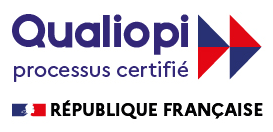Surface analysis and characterization laboratory

Alexandre VIGLIONE
Technical Sales Representative
Ask for your quote
Around this topic
- Surface wear analysis laboratory
- Laboratory blister test
- Auger spectroscopy analysis laboratory
- Sizing study on materials in the laboratory
- Analysis of a chromium oxide protective layer
- ASTM F2459-18 testing in a laboratory
- Non-destructive testing and inspection (NDT/CND)
- Laboratory tomography test
- Characterisation of surface microstructure
- Tribology in laboratory surface analysis
- Pollution problems on materials
- Problem of cracks in materials
- Laboratory profilometry analysis
- Surface roughness analysis
- Analysis of the surface topography
- Surface degradation analysis
- Laboratory analysis of surface contamination
- Analysis of a surface treatment by anodizing
- Laboratory analysis of surface condition
- Laboratory Adhesion Analysis
- Thickness measurement by SEM in laboratory
- Expertise following an adhesion problem
- Study of delamination phenomena in the laboratory
- Control of surface contamination in the laboratory
- Multi-layer analysis of material surfaces in the laboratory
- Trace analysis by SEM in laboratory
- Surface tension analysis
- Surface analysis by X-ray tomography
- Validation of surface treatment processes
- Measurement of the specific surface volume (SSV) in the laboratory
- Laboratory for the analysis of surface defects on metal parts
- Physical surface treatment analysis laboratory
- Surface functionalization of materials in the laboratory
- Laboratory analysis of outermost surface layers
- Laboratory analysis of surface chemistry
- Sandblasting : an effective approach to treat your materials
- Laboratory for surface cleanliness analysis by Scanning Electron Microscope (SEM)
- Surface coatings characterization and analysis laboratory
- Laboratory analysis and expertise of surface treatments
- Laboratory characterization of surface passivation phenomena and surface treatment baths
- Surface treatments : coating thickness measurements










